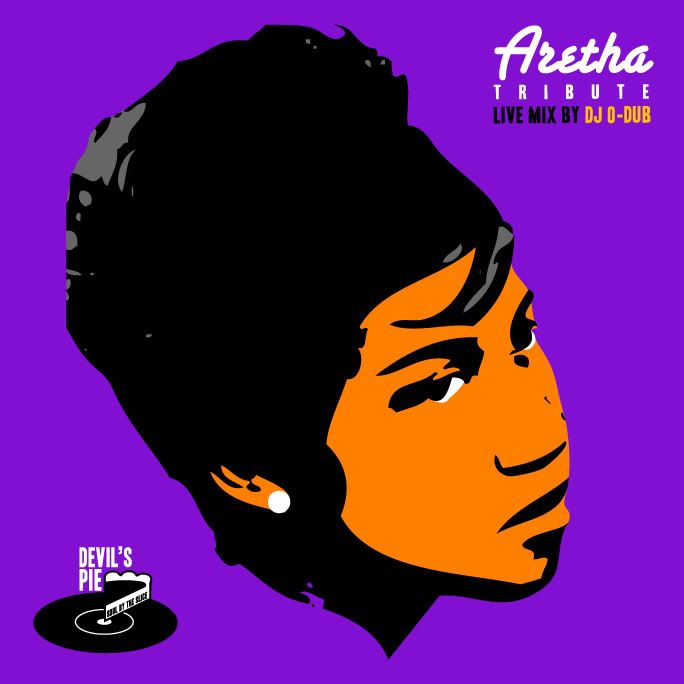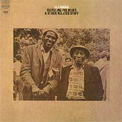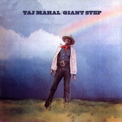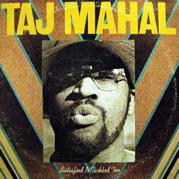
Like the passing of James Brown, Curtis Mayfield or Ray Charles, it is hard to fully grasp the enormity of what has been lost with this weekend's death of Isaac Hayes. The baritone giant will forever be linked with
Shaft, for better or for worse, but as critically and commercially important that was in Hayes' long career, it is just one tiny fragment of his overall contributions to R&B and soul music. Hayes was much more than a singer; he was a composer, a writer, an arranger and producer, as multi-talented as any R&B figure, including contemporaries such as Stevie Wonder or Smokey Robinson.
Remember that before Hayes ever graced his own album covers, he and writing/composing partner David Porter had penned some 200 songs for Stax/Volt Records; theirs was one of the most prolific and important of collaborations. The Hayes/Porter name, like Motown's Holland-Dozier-Holland or Philly Intl's Gamble-Huff, was like a stamp of excellence for most of the singles and albums the credit appeared on. They are best known for Sam and Dave's hits like "Soul Man" and "Hold On, I'm Comin" but my personal favorites were some of the tracks they wrote for Stax/Volt's female artists.
Ruby Johnson: I'll Run Your Hurt Away
From 7" (Volt, 1966).
The Charmels: As Long As I've Got You
From 7" (Volt, 1967)
Both available on The Complete Stax-Volt Singles, Vol. 1
Soul Children: The Sweeter He Is
From S/T (Stax, 1969)
The Emotions: So I Can Love You
From So I Can Love You (Stax, 1969)When Hayes set out onto his solo career with 1968's
Presenting Isaac Hayes, it was a surprising flop and Hayes placed much on the blame on the fact that he hadn't been able to make the album
his way (for example, the original version of "Precious, Precious" tops out at over 19 minutes but on the album, it was cut to less than 3. For his next album,
Hot Buttered Soul, Al Bell gave Hayes a green-light to do whatever he wanted and thus was born one of the greatest soul albums ever recorded. For those who've heard the single-shortened versions of songs like "Walk On By" and "By the Time I Get To Phoenix," you're still getting good songs but they're removed from the incredible majesty of their album versions - 15+ minute epic songs of orchestral swells and rhythmic thunder. Much has also been made of his innovation on "By the Time I Get to Phoenix" where he monologues for nearly nine minutes before actually getting into the song itself. The device has been turned into gimmick by some (see Alicia Keys on "You Don't Know My Name") but it's better to think of it as part of the same tension/release cycle that was so much a part of Hayes' output in these years.
For those who've heard this again, listen to it again - tune everything else out and just listen to this. Loudly. If you've never heard this before? Hold ya head.
Isaac Hayes: Walk On By (album version)
From Hot Buttered Soul (Stax, 1969)The next two Hayes albums,
The Isaac Hayes Movement and
To Be Continued were also cut in similar fashion to
Hot Buttered Soul, each song a sonic journey, filled with all kinds of melodic and rhythmic turns and twists. I need to really sit with
Movement more but I was enjoying
To Be Continued again, earlier today, and the album is as incredible a listening experience as anything he's ever turned out. Here's two-thirds of his B-side medley, including his sublime instrumental, "Ike's Mood I" and a surprising cover of the Righteous Bros.' hit, "You've Lost That Lovin' Feeling."
This all culminated with 1971's
Black Moses, a double album whose title and artwork were more of the label's choosing than Hayes but it's hard to hold back on messianic analogies given how masterfully Hayes can take on half a dozen of
other people's songs and then put his permanent stamp on them (
Movement was similar in this respect). I've included one of the two "never" songs from the album, his version of Jerry Butler's "Never Gonna Give You Up" (the other was Hayes' cover of the Jackson 5's "Never Can Say Goodbye.")
Isaac Hayes: Ike's Mood I/You've Lost That Lovin' Feeling
From To Be Continued (Enterprise, 1970)
Isaac Hayes: Never Gonna Give You Up
From Black Moses (Stax, 1971)According to Melvin Van Peebles in an interview I had with him, the filmmaker and blaxploitation visionary was responsible for setting the chain of events in motion that lead to Hayes recording
Shaft. Peebles had recorded the soundtrack for his
Sweetback's Baadassss Song for Stax, mostly because in those days, Stax head Al Bell was open to taking all kinds of chances, including putting out a soundtrack by a then-unknown Earth, Wind and Fire, for Peebles' independently financed film about sex, drugs and violence in the Black ghetto. When
Sweetback turned out to be the most successful independent film of the year, with the soundtrack blowing up as well, MGM decided to change the lead character in
Shaft from a white detective to Black and then went to Stax to see if they'd be willing to partner on the soundtrack. Hayes was chosen to head the project and a classic was born.
Personally, if I never heard the theme to
Shaft again, it'd be too soon but I've always had a special fondness for the charming beauty of "Ellie's Love Theme." Hayes would go onto record two more blaxploitation soundtracks, for
Tough Guys and
Truck Turner respectively. None of them had the same impact as
Shaft though that's not to say there aren't some concrete-crackin' hits on them, such as
Truck Turner's dark "Breakthrough" or
Tough Guys' memorable "
Hung Up On My Baby."
Isaac Hayes: Ellie's Love Theme
From Shaft OST (Enterprise, 1971)
Isaac Hayes: Breakthrough
From Truck Turner OST (Enterprise, 1974)I'll be the first to admit, after this point, my familiarity with Hayes' catalog begins to fall off considerably (and for many purists, Hayes' disco-era work is nowhere near as revered), save perhaps for
"A Few More Kisses To Go" given the Redman connection. I'll end by saying that, with some artists, Hayes is one of those artists whose work I always respected when he was alive but as is too often the case, you don't realize how truly remarkable someone like he is until he's gone. Having spent much of the afternoon just revisiting his catalog, I'm even more in awe than ever. An incredible man, an incredible loss at age 65.
For more...
Fresh Air's interview with Hayes from 1994Hayes performing "The Look of Love" at Wattstax.Hayes...the Chef years...and maybe I'll whip up a post of the best covers of Hayes' songs...
Labels: in memoriam, soul/funk





















 Bronx River Parkway & Candela All Stars: Donde
Bronx River Parkway & Candela All Stars: Donde













